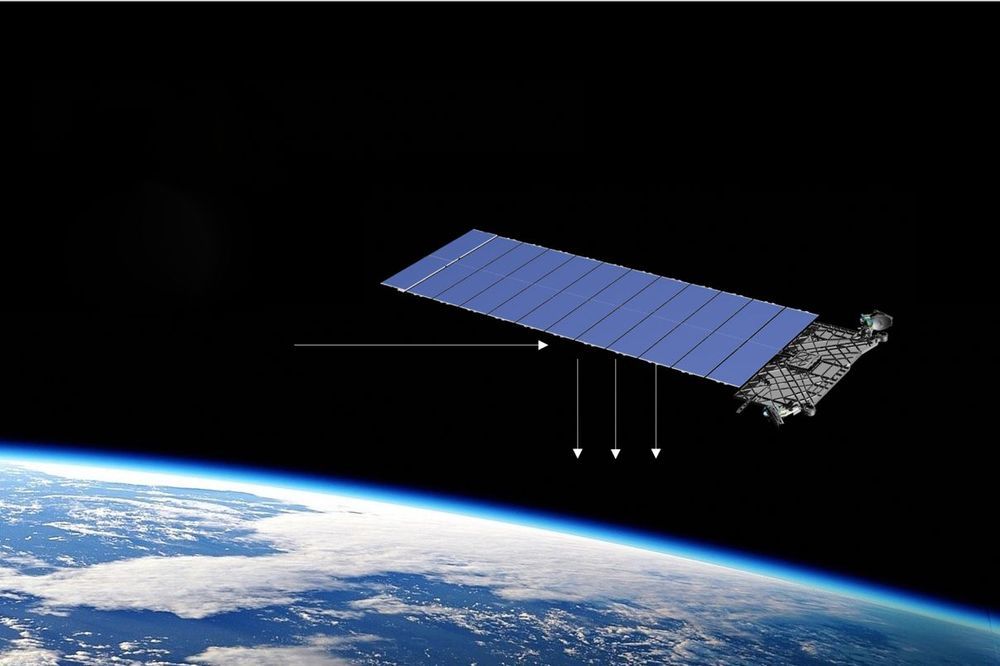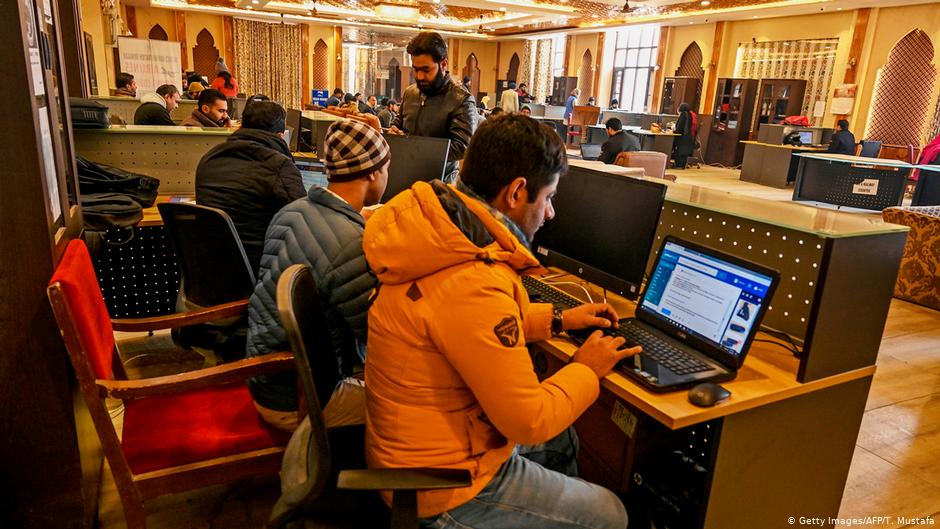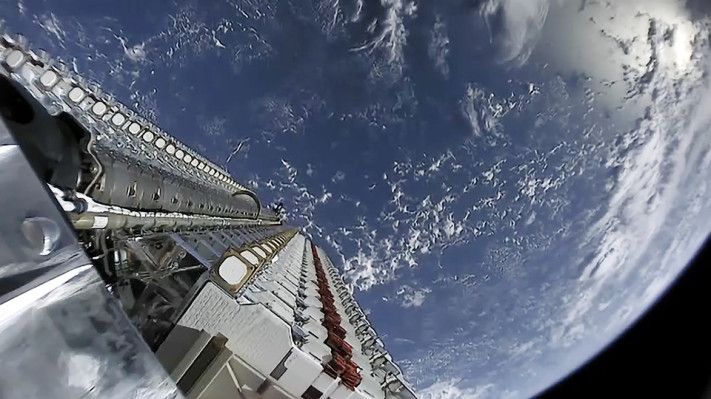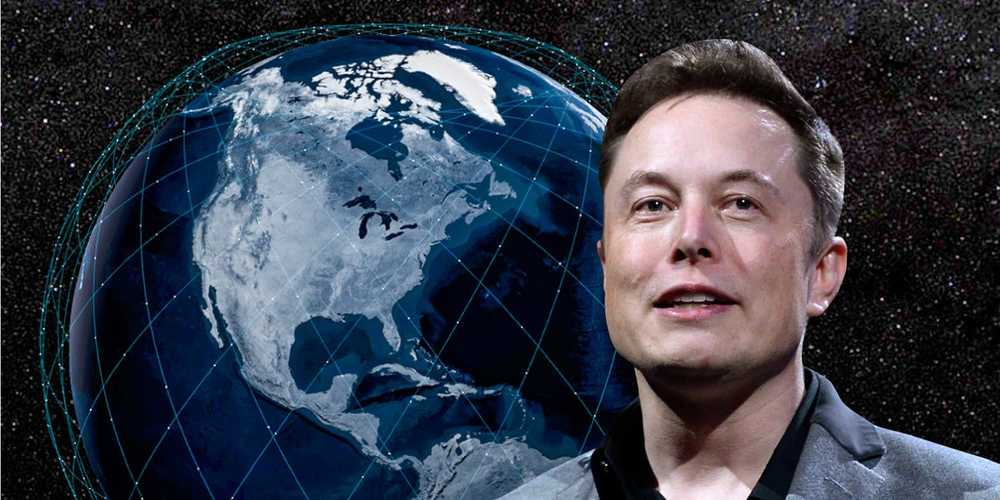SpaceX has announced that it will mount a sun visor on each of its Starlink satellites and have them perform controlled maneuvers, to make them less visible to members of the astronomy community making detailed observations of the night sky. SpaceX has already launched over 400 satellites to bolster a constellation that could one day provide global broadband internet access.
The proliferation of satellite technology and the increasing affordability of reaching low-Earth orbit (LEO) has led many – particularly those in the science community – to raise concerns about the impact that space traffic may have on the night sky. This issue has only grown more contentious with the advent of the megaconstellation, which is the term used to describe vast swarms of satellites working as a network as they fly choreographed orbits through LEO space.
SpaceX’s Starlink megaconstellation is well underway to becoming a reality, and could one day provide high-speed, low latency satellite-based broadband on a global scale.








